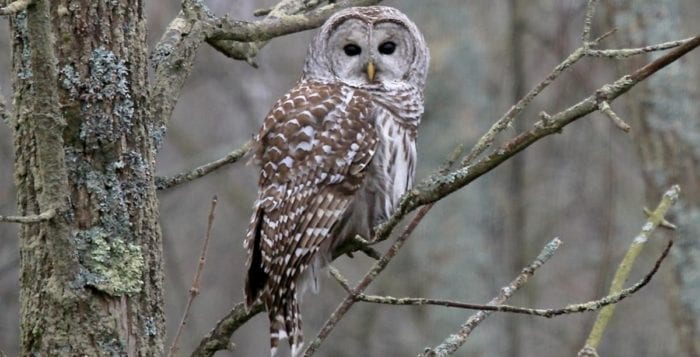Nature Matters: Haiku
By John L. Turner
A great joy from spending time outdoors emersed in nature is the opportunity, afterwards, to share the experience with others. Directly recounting a memorable nature experience with a friend or family member, say, of an osprey successfully plunging from fifty feet high, with talons flaring, to hit the water and seize a fish, or a more gentle scene of watching a pair of monarchs dancing around a buttery yellow blossoms of seaside goldenrod is, of course, the most common way to share. A more lasting way is through painting a favorite landscape, thereby providing a permanent record of beauty, wonder, and illumination. And then, there’s the very popular alternative of sharing taken photographs.
Another way to share a memory is with the pen or keyboard and that’s where my favorite way to memorialize a nature experience comes into play: writing a haiku about it. A haiku is a short poem typically structured to have three lines with the first and last lines containing five syllables and the middle containing seven, for a total of seventeen syllables. Haiku developed in Japan as far back as the ninth century but really took hold several centuries ago as a way to remember and celebrate nature.
What I’ve always enjoyed about writing haikus is that it requires your mind to distill the experienced moment into its essence, jettisoning extraneous material. This is, I find, not so easy to do. After all, you have but seventeen words to tell a story. Oh, the value of discipline!
Any subject in nature can be the focus of a haiku.
I find birds to be an especially appealing subject:
Hidden in white pine,
An owl hoots from the darkness,
With North Star above.
Barn and tree swallows,
flit, dash, and turn in sunlight,
flashing metal tints.
Overhanging branch,
Reflects bird in still water,
Belted Kingfisher
A woodcock spirals,
Toward the belt of Orion,
With love on his mind.
Bluebirds in rapture,
Tumble from a perch of oak,
The sky is falling.
With sun as loci,
Red-tailed hawk pair pirouettes,
Fanning brick toned tails.
From a city tree,
House finch song sweetly echoes,
Off brownstone buildings.
Miniature forms,
These metallic hummingbirds,
Are other worldly.
Woodpecker on tree,
Hammering of bill wears wood,
Like water does stone.
Red knots on mud flat,
hemispheric globetrotters,
bind us together.
Noisy blackbird flock,
Descends to ground from treetops,
Tossing leaves to feed.
Next to birds I’ve probably written more haikus involving the ocean than any other topic:
Miles from Island’s end,
Leviathan surfaces,
Birds flock and fish leap.
A lone sanderling,
Searches for food in wave foam,
Along the sea’s edge.
A fishing boat plows,
Through strong wind and crested waves,
Wearing cap of gulls.
A grey green ocean,
With waves made angry by wind,
Hurls against the shore.
Devonian forms,
Pairs of horseshoe crabs spawning,
Bathed in bright moonlight.
Mysterious sea,
With implacable surface,
Teems with life beneath.
Plants can be great haiku subjects too:
Spring dogwood petals,
Floating in woodland gloaming,
Like lotus on pond
A gift from a tree,
A yellow and red leaf falls,
Autumn has arrived.
Splitting sidewalk crack,
bursts of chicory purple,
the power of plants.
The smooth bark of beech,
Ripples like animal skin,
An elephant tree.
A fragile flower,
Unfurls like spreading fingers,
Of an upturned hand.
Under crisp blue sky,
Orange pumpkins dot brown earth,
A field with freckles.
On white pine sapling,
The weight of a wet spring snow,
makes the tree curtsy.
A goldenrod field,
Filled with bright yellow flowers,
Sunshine concentrate.
How about insects?
Monarch butterfly,
With Mexico on its mind,
Flutters over road.
In warming spring sun,
A mourning cloak butterfly flits,
Over forest leaves.
And then there’s miscellany:
Strand of orange sky,
The sun has fallen again,
The earth spins through space.
An orange sliver,
The western sky glows brightly,
Soon stars will appear.
Grasses look like hair,
On hills that look like muscles,
This animal earth.
Snowflakes rock downward,
On to a whitening earth,
Hiding all things.
A snowy blanket,
Covers everything in sight,
It is quiet and hushed.
Why not give haikus a try?
A resident of Setauket, John Turner is conservation chair of the Four Harbors Audubon Society, author of “Exploring the Other Island: A Seasonal Nature Guide to Long Island” and president of Alula Birding & Natural History Tours.







